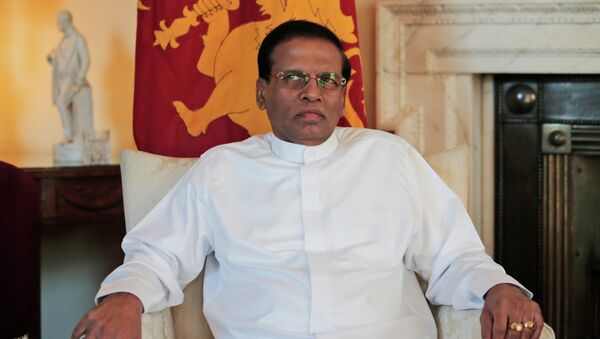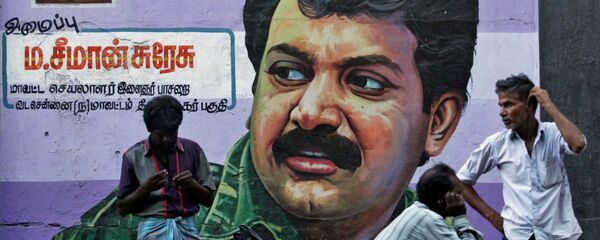On Saturday, Sri Lankan President Maithripala Sirisena suspended parliament until November 16, a day after removing Ranil Wickremesinghe as prime minister and replacing him with opposition leader Mahinda Rajapaksa, who previously served the sixth president of Sri Lanka from 2005-2016 and whose rule was tainted with allegations of brutality, corruption and authoritarianism.
The removal of Wickremesinghe is the result of months of bad blood between the two leaders, who represent parties in opposition but who have governed in an uneasy coalition since 2015.
Political tensions between Wickremesinghe's United National Party (UNP) and Sirisensa's United People's Freedom Alliance (UPFA) have been particularly high since Sirisensa recently condemned Wickremesinghe's party for not thoroughly looking into an assassination plot against the president. Sirisena also accused India's intelligence services of being involved in the assassination plot, although that claim has been denied by intelligence members.
Many Sri Lankan activists claim that Rajapaksa's return to power will stifle the progress made in Sri Lanka since the 1983 civil war. During the war, there was an intermittent insurgency against the government by the Liberation Tigers of Tamil Eelam, which attempted to establish an independent Tamil state — ‘Tamil Eelam' — in the north and east of the country. Following the civil war, civil society groups have flourished in Sri Lanka.
"A lot of people, especially Tamils, have poked their heads up to organize protests, or be witnesses in multiple corruption and criminal cases," an activist, who spoke on the condition of anonymity, told the Guardian Saturday.
"All those people will potentially have reasons to be afraid."
At 7 p.m. Friday, a live stream of Rajapaksa's swearing-in as prime minister was broadcast. While Rajapaksa's supporters celebrated in the country's capital of Colombo, 69-year-old Wickremesinghe told a televised press conference that he will remain as prime minister.
"I am addressing you as the prime minister of Sri Lanka," he said. "I remain as prime minister and I will function as the prime minister."
As of yesterday, Wickremesinghe was still living at Temple Trees, the prime ministerial residence. However, on Friday night, Rajapaksa supporters took over state-owned newspaper and TV outlets. Sri Lankan police units have been deployed to multiple key locations around the county.
Under the law, the Sri Lankan president cannot dismiss the prime minister unless the 225-member parliament votes on the decision. However, with parliament suspended, Wickremesinghe, whose United National party holds the most parliamentary seats, was unable to administer an emergency vote.
Namal Rajapaksa, a parliament member and Rajapaksa's son, told the Observer this weekend that his father would call for a majority when the parliament resumes.
"We just need a couple of weeks to decide how this government is going to work," he said.
"Even through years of war, Sri Lanka has never had a transfer of power whose legality was questioned. There will be a fight, but in the interim you will have this dangerous period with competing parties claiming to the legitimate holders of power," Alan Keenan of the International Crisis Group told the Guardian.






